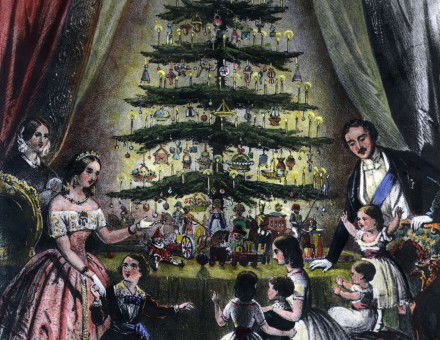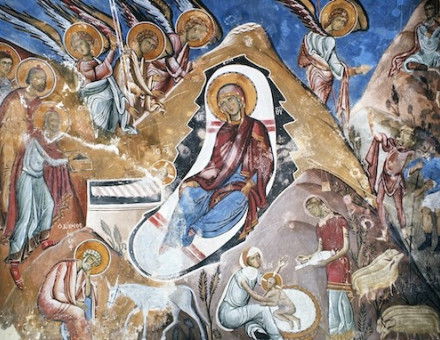Strange Guests at Hotel de l’Europe
Was one of Europe's finest hotels occupied by members of the English working class during the interwar years?
fin de siècle Europe produced a prelapsarian moment of optimism and constant delight: ‘I feel sorry for all those who did not live through these last years of European confidence’, he wrote in his memoir The World of Yesterday, shortly before his suicide, exiled in Brazil in 1942. Yet after the events of 1914, renewed disaster was to strike in the early 1920s. With the country’s currency, the Crown, ‘dissolving like jelly’ amid postwar hyperinflation, ‘Austria’, Zweig writes, ‘was discovered’:
[The country] became disastrously popular with foreign visitors in a parody of the society season. All the hotels in Vienna were crammed full with these vultures. Hotel receptionists from Switzerland and Dutch shorthand typists stayed in the princely apartments of the Ringstrasse hotels.
Zweig’s class prejudice is unmistakable – he was an upper-middle class man ‘of his time’ – but his observation on the influx of foreign tourists holds factual currency. The fantastic claim that follows it, however, is certainly more contentious. Zweig writes,
Incredible as it may seem, I can vouch for it that for a long time the famous, deluxe Hotel de l’Europe in Salzburg was entirely booked by unemployed members of the English proletariat, who could live here more cheaply than in their slums at home, thanks to the generous unemployment benefit they received.
Richard Strauss, Wilhelm I and, during the Second World War, the German Wehrmacht were among the Hotel de l’Europe’s ‘illustrious’ guests; can it possibly be true that, in the interwar years (anticipating mass tourism by several decades) members of the English working class holidayed en masse – like a conquering army – in one of Europe’s grandest hotels at the expense of the welfare state?
‘It is certainly true that, in the 1920s, Austria was full of what were known as Valuta-Touristen – tourists taking advantage of the exchange rate’, says Dr. Deborah Holmes, senior Lecturer in German at the University of Kent. ‘There was a massive increase in the number of foreign visitors to Salzburg in this period, that much is indisputably true. It is also true that “Red Vienna” – the city was run by a social democrat council from 1918 to 1934 – had close links to left-wing groups in Britain and there were exchange visits between Labour Party authorities and Viennese representatives. Maybe this also led to an influx of less well-off British visitors to Austria?’
Zweig’s detractors – among them Michael Hofmann, who, writing in the London Review of Books, asserted that the author ‘just tastes fake’ – would likely consider investigating this audacious claim a waste of time. If an enterprising group of working-class English travellers did migrate to Salzburg, it was almost certainly not en masse. ‘This definitely did not happen’, says Dr Selina Todd, author of The People: The Rise and Fall of the Working Class 1910-2010 (John Murray, 2014), debunking both claim and rationale: ‘Unemployment benefit in England at this time was no more generous than that of other European states and, in fact, rather less generous for older (i.e. adult) men.’
There’s little enthusiasm for Zweig’s claim among historians. ‘British working class-communities during this period were insular and relied upon their own internal support mechanisms, clubs, societies and close-knit support networks, rather than outside agencies and opportunities,’ says Dr Brad Beaven, author of Leisure, Citizenship and Working-Class Men in Britain, 1850-1945 (Manchester University Press, 2005). ‘The claim doesn’t seem plausible – the only group who I could envisage doing anything like this would be the “tramping artisans” or skilled workers who were used to travelling for work and who exhibited a robust independent culture.’
Yet despite Zweig’s reputation as a purveyor of erroneous entertainments, it is difficult to accept his implausible claim as a baseless fabrication. ‘Zweig rarely completely fabricates’, in the opinion of his biographer George Prochnik. ‘He shades and recasts and this could well be an exaggeration, but really – how could it be impossible given the extremity of the inflation? A stay at the hotel at that time paid for in English currency would have been close to free.’
Might we interpret Zweig’s account as an example of history being written by the disgruntled loser? ‘The tone’, says Deborah Holmes, ‘is very typical of upper-middle class Austrian indignation after defeat in the war’. This is problematic given Zweig’s pacifist leanings and the fact that he was writing with hindsight in 1942, having adopted London as his home for several years after National Socialism took hold of Austria. Perhaps there is another explanation: Zweig spent the years between 1919 and 1921 ‘buried in Salzburg’ (his words) and though his account of this period is miserable, he does acknowledge, with certain enthusiasm, the inaugural Salzburg Festival in 1920, bringing to the city an influx of foreign musicians and artists – possibly of the ‘tramping artisan’ variety. It is true that the hotel’s owners were prominent in supporting the founding of the festival; is it possible that a group of English, or English speaking, artists stayed at the Hotel de L’Europe, and that Zweig was unable to distinguish them as such? Holmes thinks not: ‘Zweig was an important mediator in cultural matters. He would have been well informed about festival logistics.’ Perhaps Zweig borrows an overheard anecdote, with the intent of adding emphasis to his account of a country on its metaphorical knees.
Zweig’s word was good enough for the hotel’s historian, Andreas Kapeller, who quotes Zweig without backup in his study Hotel de l’Europe: Salzburg’s Unforgettable Grand Hotel (Colorama, 1997). Yet Kapeller does provide some information of interest to the historian trying to make a speculative case for the phantom unemployed English guests. In September 1918, with the war approaching its conclusion and much of the city’s population close to starving due to the Allies’ blockade of Austria, the Hotel de l’Europe was plundered for food, furniture and livestock – there are reports that flesh was cut from pigs in the hotel’s sty while still alive. The hotel was left ransacked and in early First Republic Austria the resources or raw materials to replenish it were scant. The hotel received emergency financial help from the state in 1919, an interest-free state loan in 1920 (1,400,000 Kronen) and another in 1921 (1,500,000). Inflation was at its worst between late 1919 and the summer of 1922, but given that the damage caused by the plundering coincide with the precise moment that other luxury hotels in Austria were able to attract 'high-class' guests from abroad again, it is conceivable that the Hotel de l'Europe may have had to rely on a lower class of foreigner to fill up its 200 rooms.
Due to Austrian requirements (still in place today) visitors must complete a Meldezettel (or Residence Registration Form) when checking into an Austrian hotel. It would therefore be possible to discover exactly who stayed at the Hotel de l’Europe during the period Zweig describes, though such investigation would require prior knowledge of the names of individual guests and may prove a fool's errand. There was no space on such forms for disclosure of class background, though through address, religion and profession an estimate of whether guests were well heeled or not might not prove difficult. Zweig, of course, has recently found new readership thanks to his connection with a different hotel – the fictional Grand Budapest of Wes Anderson’s film of the same name. Anderson has been praised for his exaggerated evocation of a Europe that never truly existed; should we praise (or condemn) Zweig for the same thing?
Indeed, earlier in his memoir, recalling his return to Austria after the Great War, Zweig describes his train arriving at a station on the Swiss border, with a stately locomotive heading the other way. From his carriage window he perceives a familiar figure:
Emperor Karl standing very erect next to his black-clad wife Empress Zita. It gave me a shock – the last emperor of Austria, heir to the Habsburg dynasty that had ruled the land for seven hundred years, was leaving his domains!
Was Zweig consistently in the right place at the right time – like an Austro-Hungarian Forrest Gump – or is he a well-informed but unreliable narrator? Perhaps we might measure his value as a witness to the years spanning 1881 to 1942 in terms similar to those with which Mathew Lyons, writing in the January issue of History Today, describes Herodotus: 'We are delighted when we believe him to be accurate; but accuracy is not a standard we demand of him'.
Rhys Griffiths is assistant editor at History Today.
Dr. Deborah Holmes is senior Lecturer in German at the University of Kent.




